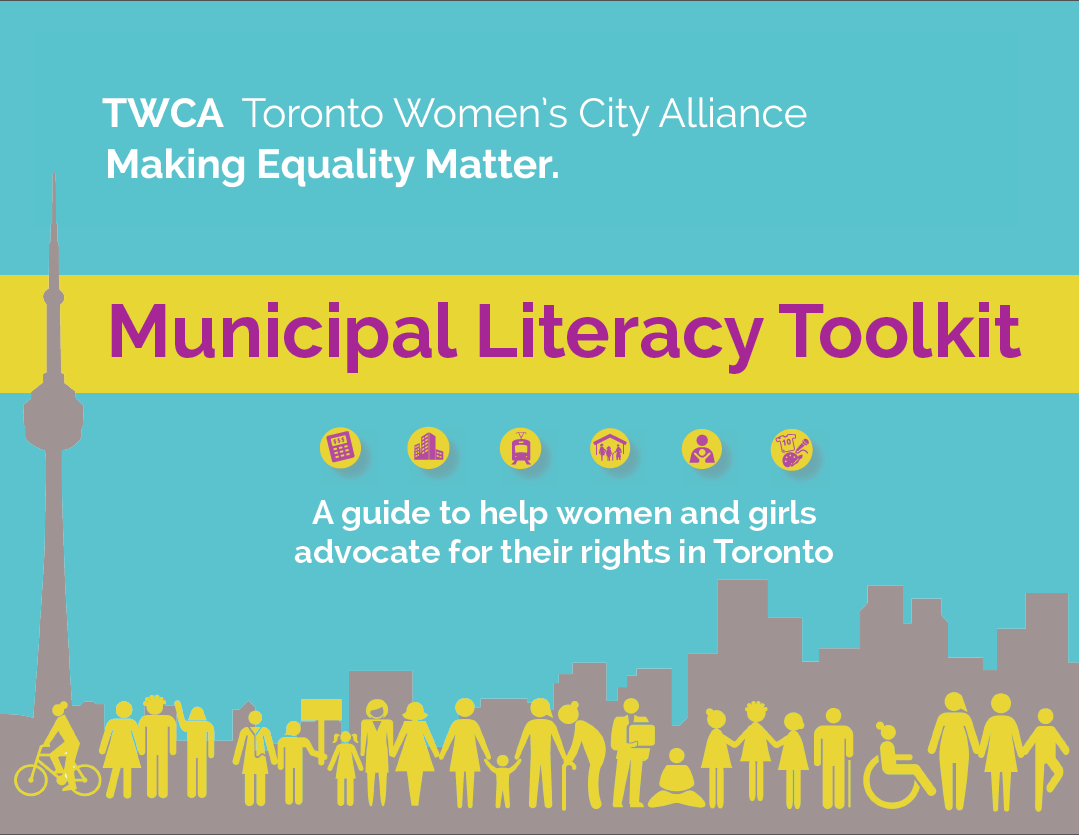January 20, 2014
The Chair
Community Development and Recreation Committee
10th floor, West Tower, City Hall
100 Queen Street West
Toronto, ON M5H 2N2
Dear Councillor,
I am writing on behalf of Toronto Women’s City Alliance (TWCA) with regard to the Committee’s consideration of CD 26.4 Measuring the Impact of Childcare Fee Subsidies.
For families living in the City of Toronto (including families with dual incomes) the lack of affordable, safe and high-quality daycare options for their children is a frightening reality. This leads to concerns about a family member’s ability to work and financially contribute to her/his household’s basic needs. Many families end up sacrificing their current and future income potential, by deciding that one parent remain at home, thus saving on exorbitant daycare fees (one parent this author spoke to spends $1400 on daycare every month for her 2 year old son).
Parents also want to ensure that daycare spaces for their child/children are not only affordable, but also provide quality care and education that will enhance a child’s social, emotional, intellectual and physical development; thus, they would like to send their children to an affordable and high quality daycare and give their little ones the best start to their lives.
These realities become even more frightening for a single parent living with a sole and/or low-income and with minimal familial support. As many single parent/sole income families are led by women in Toronto, the lack of affordable daycare and the issue surrounding childcare subsidies become a woman-centric issue. Many single mothers choose to leave employment and seek social assistance, thus allowing them to look after their children themselves, in the absence of affordable and quality childcare. Other single parents are forced into unemployment, because they are unable to find employers that will be willing to accommodate their children’s strict daycare drop-off/pick-up schedules or childcare needs for evenings (this is particularly true for single parents working in the service industries or parents wanting to attend school to upgrade their employability skills).
One can argue that there should be no problem as the City provides childcare subsidies to ensure that lower income families are able to place their child/children in licensed and quality City-run daycare facilities. However, with waitlists for subsidies totaling over 17,000+ children and many parents waiting for close to a year or more, there is a massive problem. One apparent problem is the single mother stuck in the catch 22 situation of not being able to afford childcare if she does not have a full-time job with a sustainable wage or not being able to obtain and retain a job, if she does not have affordable and trust-worthy daycare for her child/children.
This Catch-22 situation, when multiplied thousands of times over for thousands of parents, cause a catastrophic dent to economic activity and unemployment statistics in the City of Toronto. Moreover, no study to TWCA’s knowledge has measured or considered whether the lack of early socialization and education in a quality daycare/preschool environment lead to lower educational attainment or economic output and lower levels of social ability.
TWCA strongly supports the proposed longitudinal study of Child-Care Fee Subsidy Impacts from the Ontario Institute for Studies in Education (OISE) and urges the City Council to approve the partnership between OISE and Toronto’s Children Services Division for the purposes of this study. TWCA welcomes the opportunity that this important research project presents in impacting child care fee subsidy policies for the better. TWCA further encourages this longitudinal research project to objectively support and vindicate the struggles of many families who do not have affordable and quality childcare, thus leading their families to poverty, lost economic output, potential negative effects on child development and to further family stress.





